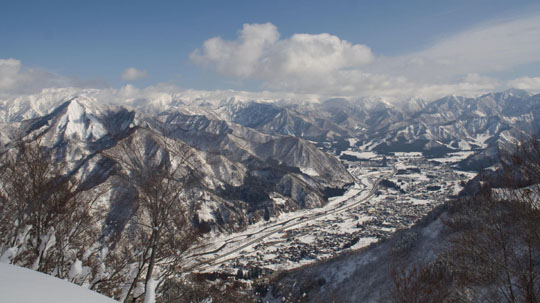"The special delights of the hot spring are for the unaccompanied gentleman," states the introduction to Yasunari Kawabata's "Snow Country," instantly seizing the attention.
The novel, cited when Kawabata (1899-1972) won Japan's first Nobel Prize for Literature, is set in the small hot-springs resort of Yuzawa, Niigata Prefecture, and recounts the doomed love affair between a Tokyo dilettante and a mountain geisha in the harsh, cold beauty of one of the snowiest regions in the nation.
The resort of Kawabata's imagining is at once a place of timeless beauty and a token of the march of modernity. The stars of the night sky press so close as to "fall with the swiftness of the void" just above mountains that are "brilliant with the color of snow," even in darkness. Pages later, guests in the resort enjoy the Western pursuits of skiing and hiking before relaxing in the bath, and the protagonist flees his geisha lover by the new train line through the mountains, returning to Tokyo.



















With your current subscription plan you can comment on stories. However, before writing your first comment, please create a display name in the Profile section of your subscriber account page.